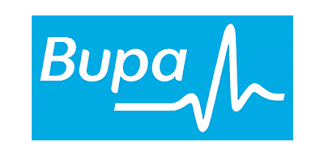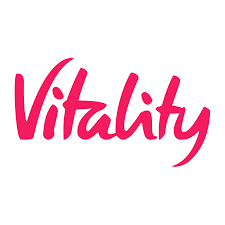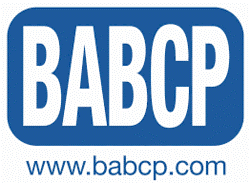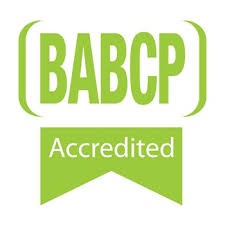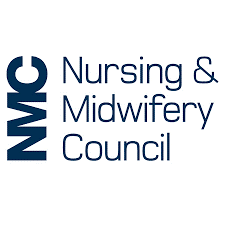CBT Wellbeing offers face-to-face Cognitive Behavioural Therapy, helping you to find the answers for better mental wellbeing.
CBT is used to treat anxiety, depression, low mood, trauma (PTSD), obsessive compulsive disorder (OCD), health anxiety, adjustment, attachment problems, insomnia and much more.
I work with adults and young people.
What is Cognitive Behavioural Therapy?
Cognitive: Your thinking processes. This may be the thoughts that pass through your mind, dreams, memories or images.
Behavioural: What you or don't do. It's how you respond to situations and your thoughts. They may be habits or compulsions.
Therapy: Talking together in a systematic way to understand how your thoughts and behaviours are impacting on you and working together to change and adapt these.
CBT is used to treat anxiety, depression, low mood, trauma (PTSD), obsessive compulsive disorder (OCD), health anxiety, adjustment, attachment problems, insomnia and much more.
I work with adults and young people.
What is Cognitive Behavioural Therapy?
Cognitive: Your thinking processes. This may be the thoughts that pass through your mind, dreams, memories or images.
Behavioural: What you or don't do. It's how you respond to situations and your thoughts. They may be habits or compulsions.
Therapy: Talking together in a systematic way to understand how your thoughts and behaviours are impacting on you and working together to change and adapt these.
One in four of us will have some issues with our mental health at some point in our lives. When we’re struggling with our mental health we can get stuck in unhelpful patterns of thinking and behaving. Talking to a third party in a confidential and non-judgmental setting can often help to try and break the cycle.
CBT is an evidenced based talking therapy which focuses on understanding a person’s difficulties in more detail. Theory and research inform us that the way you think affects the way we feel and behave. CBT focuses on an individual’s perception and view of experiences and situations. It generally focuses on the ‘here and now’, but it can sometimes be useful to also gain a greater understanding of how the past impacts on your current wellbeing. The main purpose of CBT is to help to identify and change unhelpful thinking patterns, beliefs and behaviours.
There is a wealth of evidence to show that CBT works effectively in treating a range of problems.
The National Institute for Health and Clinical Excellence (NICE) recommends CBT in the treatment of the following conditions:
How Is CBT Delivered?
I usually offer weekly face to face individual sessions, but can be flexible if needed. Sessions are between 50-60 minutes. We will discuss your specific difficulties and set goals you want to achieve. A lot of work will take place in our sessions but we will also agree tasks for you to do between sessions to embed the changes and skills learnt in session. If I'm working with a young person then family will also be involved in the treatment plan and some sessions.
If you have been struggling and you feel that this treatment is something that would be beneficial for you or you just want to find out a little bit more about it, then please get in touch. I offer a free initial consultation either by phone or face to face.
CBT is an evidenced based talking therapy which focuses on understanding a person’s difficulties in more detail. Theory and research inform us that the way you think affects the way we feel and behave. CBT focuses on an individual’s perception and view of experiences and situations. It generally focuses on the ‘here and now’, but it can sometimes be useful to also gain a greater understanding of how the past impacts on your current wellbeing. The main purpose of CBT is to help to identify and change unhelpful thinking patterns, beliefs and behaviours.
There is a wealth of evidence to show that CBT works effectively in treating a range of problems.
The National Institute for Health and Clinical Excellence (NICE) recommends CBT in the treatment of the following conditions:
- Anxiety Disorders (including Panic Attacks and Post-Traumatic Stress Disorder)
- Phobias
- Depression
- Obsessive Compulsive Disorder.
- Chronic Fatigue
How Is CBT Delivered?
I usually offer weekly face to face individual sessions, but can be flexible if needed. Sessions are between 50-60 minutes. We will discuss your specific difficulties and set goals you want to achieve. A lot of work will take place in our sessions but we will also agree tasks for you to do between sessions to embed the changes and skills learnt in session. If I'm working with a young person then family will also be involved in the treatment plan and some sessions.
If you have been struggling and you feel that this treatment is something that would be beneficial for you or you just want to find out a little bit more about it, then please get in touch. I offer a free initial consultation either by phone or face to face.
Useful Links
The Mental Health Foundation has good resources on sleep and stress management:https://www.mentalhealth.org.uk/
MoodJuice is an NHS Scotland website with great CBT informed self-help workbooks: https://www.moodjuice.scot.nhs.uk/
The Oxford Cognitive Therapy Centre has booklets for only a few pounds on most mental health problems: https://www.octc.co.uk/product-category/booklets
The Samaritans are available in a crisis 24 hours a day, 365 days a years by phone on 116 123: https://www.samaritans.org/







